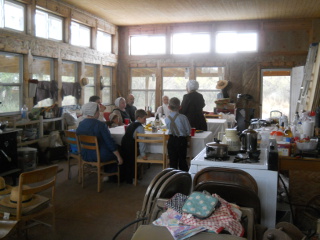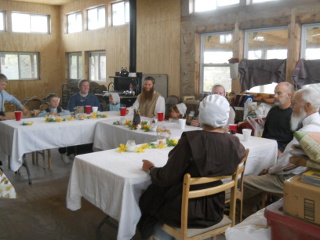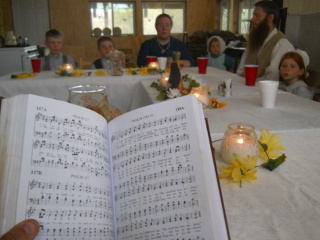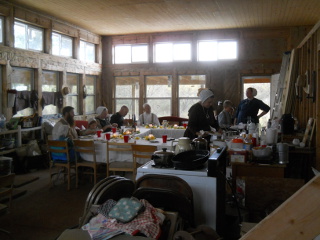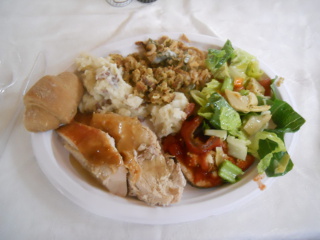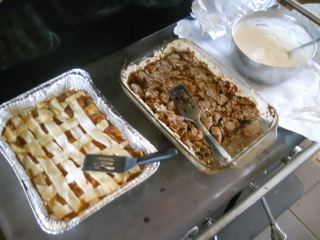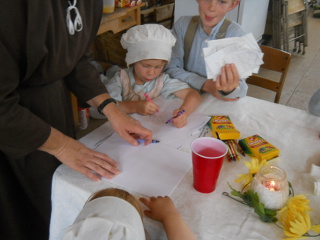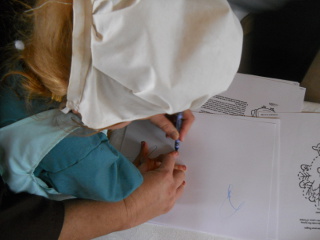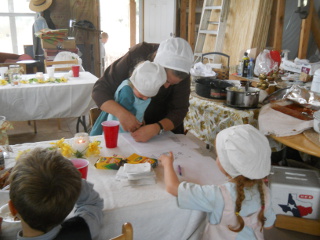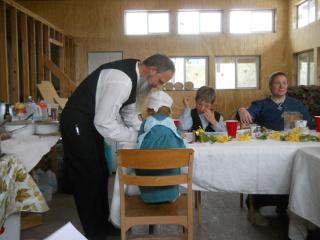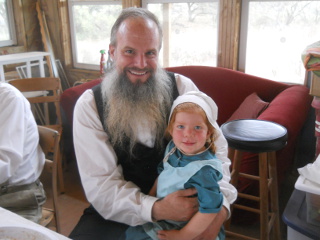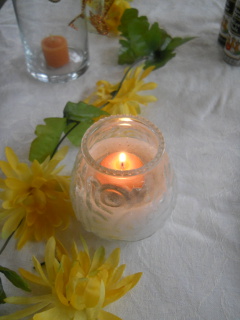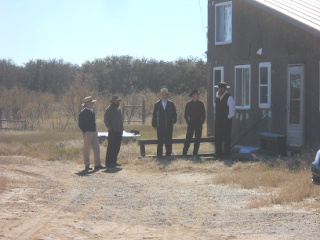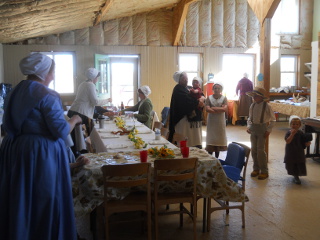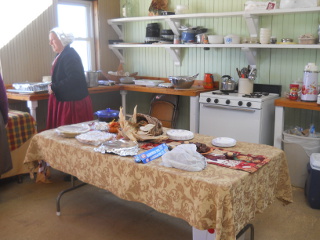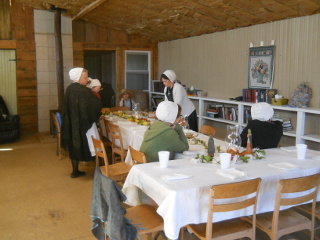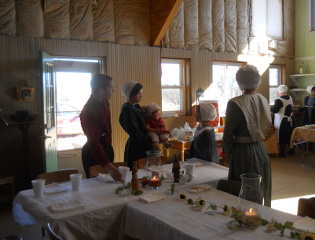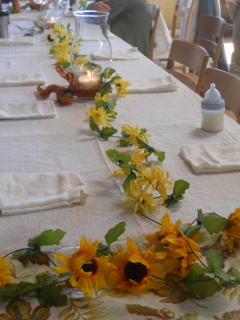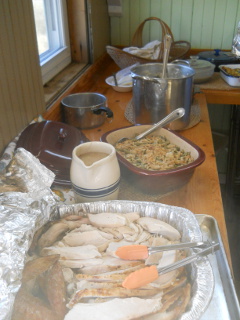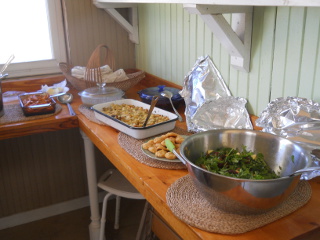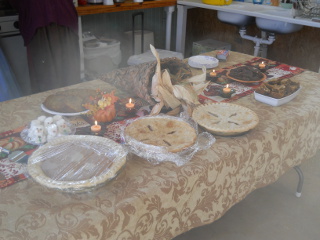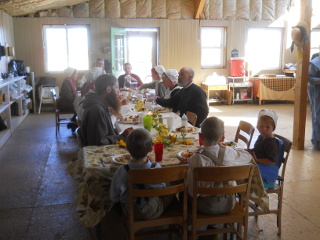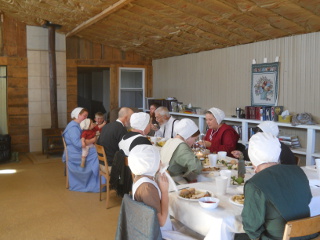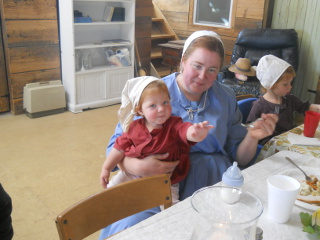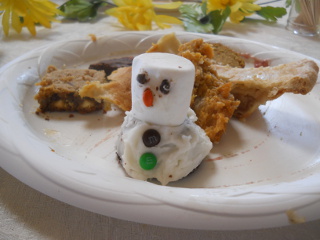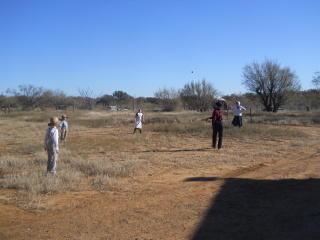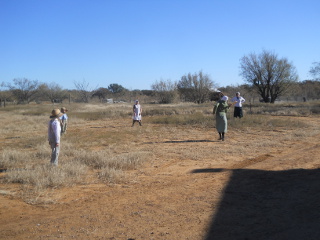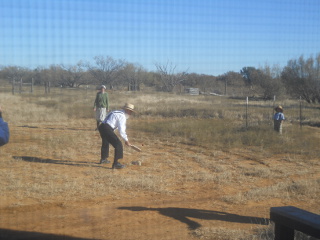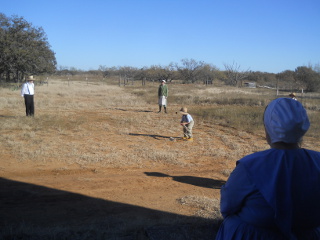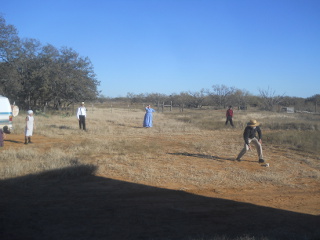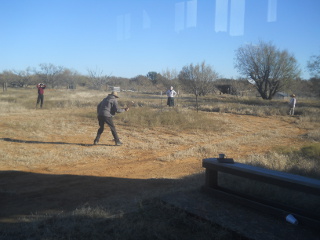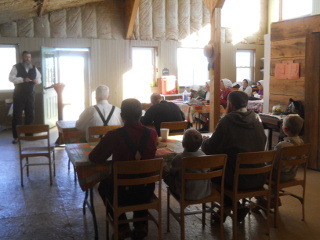Ten years ago this past Wednesday, Sue & I arrived here after four days of travel from San Jose, CA, with all of our stuff. Fast forward, and most of that is junk to us now and a lot of it is gone, as our desires for how to live life here have changed from having all of the city comforts and entertainment to not striving to maintain those things as much anymore, continuingly trying to get away from them, with our sole dependence on God and His sufficiency and providence.
Much of the ten years have not gone like I had thought they would. You learn this quickly out here in day to day life. But, you also have to learn to let go of how *you* want things and let them happen in God’s timing.
We’re sometimes asked what the hardest part of being out here is, and my answer is the putting down of self, which is what is required of us. Being intimately involved with other families, much like the internals of a family, you get the best and worst of people, and of course, they get the best and worst of you. But, what do you do with that?
First, I’ve always looked at my commitment here to the group in a way similar to a marriage commitment, which requires a choice to work through things.
But second and most importantly, the graces of God are required.
The marks of a true Christian are not only having the truth in doctrine and beliefs, but the fruit of God’s Spirit. And the only way to know if you have that fruit is by evidence, and the only way for these to be made evident are by the testing of them to see if they are there. And they must be true graces written by God on the heart, not fake or external-only ones, which can look correct on the outside, but don’t last, and, just like the real ones, will be made evident in such an environment as here.
Gal 5:22-23 – “22 But the fruit of the Spirit is love, joy, peace, longsuffering, gentleness, goodness, faith, 23 Meekness, temperance: against such there is no law.”
I’m going to focus on only a few of them because they are often the most difficult for a situation like out here.
Interacting with people, and in the spirit of denying ourselves, often requires longsuffering with what you perceive as faults, and meekness in not being easily offended or wanting to offend. Think about the INFINITE longsuffering and mercy of Jehovah God toward you, as a sinner deserving eternal hell and separation from God for the least sin, and how does that not lead us to want that kind of forbearance from us? Same with meekness. The carnal man bristles at this immensely, and this is when I believe many fall short in a place like this. And the flesh reeling against it leads to two paths — ask God for the graces to be merciful, longsuffering and patient, waiting on Him, and for graces for others; or try to mold others in your image. And with the latter, when that doesn’t work, cause further strife and division, and leave.
Longsuffering and mercy also require a trust in God in His work and His timing, letting the Almighty and All-Knowing work things out according to His perfect will and wisdom.
All of these can be coalesced into charity, or godly, Christian love, which includes meekly bearing the injuries received from others, humility, unselfishness, and being willing to undergo all sufferings in the way of duty. Read Jonathan Edwards’ “Charity and Its Fruits“, or listen to a reading of it here for the first half, and here for the second half.
Our lack of these graces should drive us to fervent prayer for them, if we truly desire to be molded in the image of Christ.
Why do I want to remain here? Because I believe this is a place where the graces of Christ are shown in me to be lacking, which affords me an opportunity to go to the Source of them and plead for them, and where they can be exercised, where they hopefully grow by the work of the Holy Spirit.
And what further helps is that there are the fewer worldly distractions out here, allowing us to focus on studies in the means of grace; and living the agrarian examples of the Bible and being reminded of spiritual reality via the temporal around us.
We also as a group have been going through John Owen’s “The Glory of Christ” for the last several years, and in my opinion, this is one of the, if not the, most important book outside of the Bible and Puritan Bible commentaries one can study.
And I have come to believe that none of this around me matters in how life’s circumstances roll out, but that the most important things are seeing Christ and His glory by faith now and by sight later, that God would grant my heart to be motivated out of love for Him with an eye to His glory, which evidences itself in obedience to Him, and love to and putting myself below the brethren around me.
I always pray the Lord glorify Himself through us, and that His glory and the benefit of His Church would be our primary focus, however long God graciously and mercifully grants us to be able to remain here.
Today we’re remembering the Lord Christ and His atoning work in the ordinance of the communion of the body of Christ, with like minded believers. There’s no place on this earth I’d rather be.
Luke 9:23 – “And he said to them all, If any man will come after me, let him deny himself, and take up his cross daily, and follow me.”
Matt 5:7 – “Blessed are the merciful: for they shall obtain mercy.”
1 Cor 13:1-7 – “1 Though I speak with the tongues of men and of angels, and have not charity, I am become as sounding brass, or a tinkling cymbal. 2 And though I have the gift of prophecy, and understand all mysteries, and all knowledge; and though I have all faith, so that I could remove mountains, and have not charity, I am nothing. 3 And though I bestow all my goods to feed the poor, and though I give my body to be burned, and have not charity, it profiteth me nothing. 4 Charity suffereth long, and is kind; charity envieth not; charity vaunteth not itself, is not puffed up, 5 Doth not behave itself unseemly, seeketh not her own, is not easily provoked, thinketh no evil; 6 Rejoiceth not in iniquity, but rejoiceth in the truth; 7 Beareth all things, believeth all things, hopeth all things, endureth all things.”
Matt 7:3-5 – “3 And why beholdest thou the mote that is in thy brother’s eye, but considerest not the beam that is in thine own eye? 4 Or how wilt thou say to thy brother, Let me pull out the mote out of thine eye; and, behold, a beam is in thine own eye? 5 Thou hypocrite, first cast out the beam out of thine own eye; and then shalt thou see clearly to cast out the mote out of thy brother’s eye.”
James 1:2-8 – “2 My brethren, count it all joy when ye fall into divers temptations; 3 Knowing this, that the trying of your faith worketh patience. 4 But let patience have her perfect work, that ye may be perfect and entire, wanting nothing. 5 If any of you lack wisdom, let him ask of God, that giveth to all men liberally, and upbraideth not; and it shall be given him. 6 But let him ask in faith, nothing wavering. For he that wavereth is like a wave of the sea driven with the wind and tossed. 7 For let not that man think that he shall receive any thing of the Lord. 8 A double minded man is unstable in all his ways.”
Psalm 27:14 – “Wait on the Lord: be of good courage, and he shall strengthen thine heart: wait, I say, on the Lord.”
John 17:24 – “Father, I will that they also, whom thou hast given me, be with me where I am; that they may behold my glory, which thou hast given me: for thou lovedst me before the foundation of the world.”
Psalm 73:25-26 – “25 Whom have I in heaven but thee? and there is none upon earth that I desire beside thee. 26 My flesh and my heart faileth: but God is the strength of my heart, and my portion for ever.”
— David
